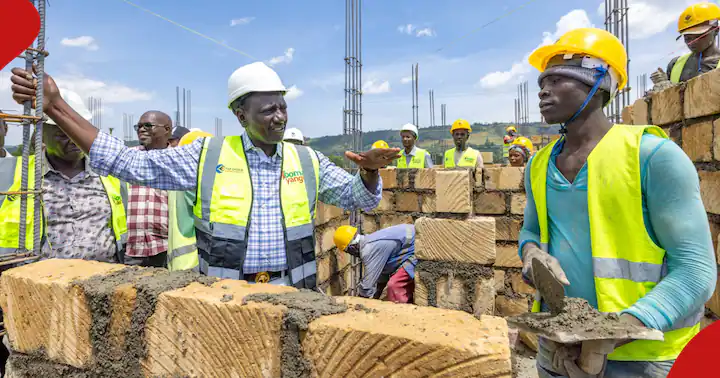Former President Farmaajo Warns Against Politicizing NCC Mogadishu, Somalia – May 7, 2025 — Former…

Empower Kenyans to acquire homes on their own
In its pursuit of the controversial Housing levy, the government appears to have overcome legal obstacles, yet the program remains mired by numerous controversies.
The affordable housing plan embodies a disturbing lack of transparency, driven more by an appetite to serve a few contractors rather than a genuine concern for citizens.
The deal had to surmount legal challenges mounted against it, with the High Court deeming it unconstitutional on November 28, 2023, citing a violation of constitutional principles.
This ruling was upheld by the Court of Appeal on January 26, 2024. However, the government pushed an amended legislation through the National Assembly and the Senate, disregarding public opposition.
President William Ruto’s recent announcement of his intention to sign the amended Affordable Housing Bill, 2023, now means the reinstatement of the levy deductions, despite concerns over its impact on citizens financial well-being.
It is the manner in which the government pursued this scheme that raises significant questions about democratic principles, governance integrity, and development in Kenya.
By sidelining public input and dissenting voices, the impending signing of the Housing Levy bill reflects a governance style characterized by unilateral decision-making, further eroding trust in the government.
One of the core concerns surrounding the housing levy is that it appears to prioritise the fulfilment of commitments to contractors and beneficiaries in advance, over genuine efforts to address housing issues.
The entities who will build these houses are not investing their own money.
Instead, they are being incentivized to undertake construction projects with the assurance that the Fund will mitigate risks by compensating them.
Rather than relying on government funds, why not allow private investors to spearhead housing projects independently? By providing assurances to successful contractors, wouldn’t the State foster a more conducive environment for investment and innovation?
If the concept were viable, private investors would not require government intervention. Instead, they would pursue construction projects independently and secure off-take agreements with potential buyers.
The emphasis on creating a fund to mitigate risks for contractors undermines the principles of a free market economy. It is essentially a financial arrangement in the name of a funding scheme, lacking the transparency and accountability expected of public initiatives.
Rather than focusing solely on building houses and imposing levies, the government should prioritize raising income levels to empower citizens economically. The lack of transparency regarding the levy suggests favoritism towards select individuals or groups within society, further undermining public trust and intensifying existing inequalities.
Moreover, the implementation of the levy introduces ambiguity regarding its nature and purpose, particularly concerning the Affordable Housing Fund. This fund appears more of a financial structure than a genuine funding scheme, lacking transparency and accountability expected of public initiatives.
Further, the reliance on government funds instead of allowing private investors to lead housing projects stifles innovation and investment potential in the country.
The emphasis on creating a fund to mitigate risks for contractors rather than addressing root causes perpetuates inefficiency and dependency, hindering sustainable progress in addressing housing inequities.
Instead of coercive measures, the government should consider prioritizing more holistic solutions that empower citizens economically, enabling them to access housing through their means.
The assertion that the housing levy will help the country generate significant employment opportunities overlooks existing job market dynamics and the need for sustainable income-generating activities.
The implementation of Housing Levy scheme calls for transparency, accountability and citizen empowerment in addressing challenges and the government must shift focus towards more holistic, citizen-centric approaches to ensure sustainable progress in development.


This Post Has 0 Comments